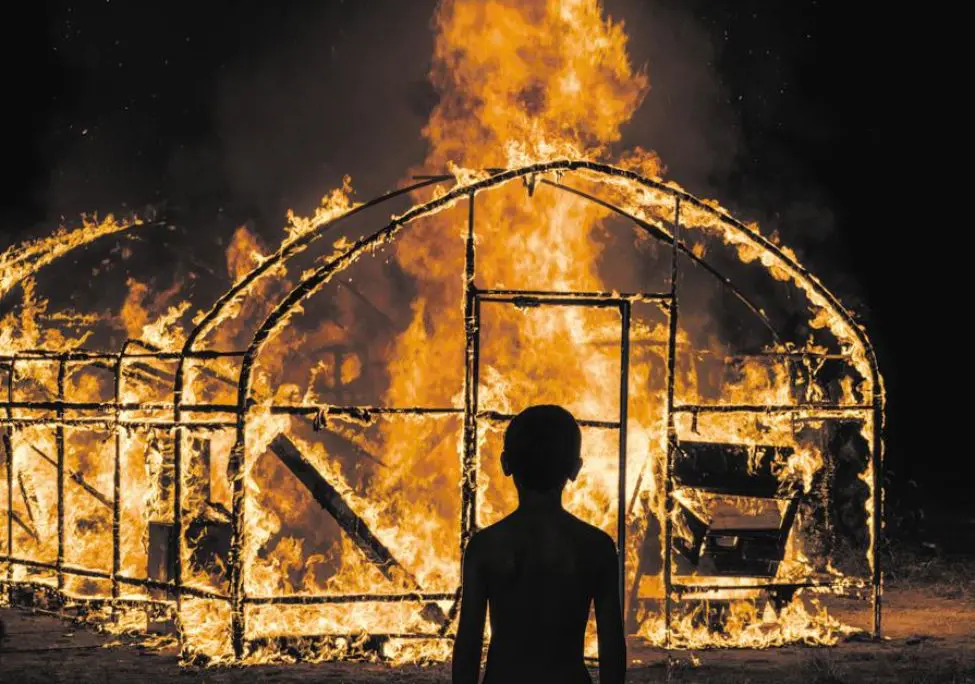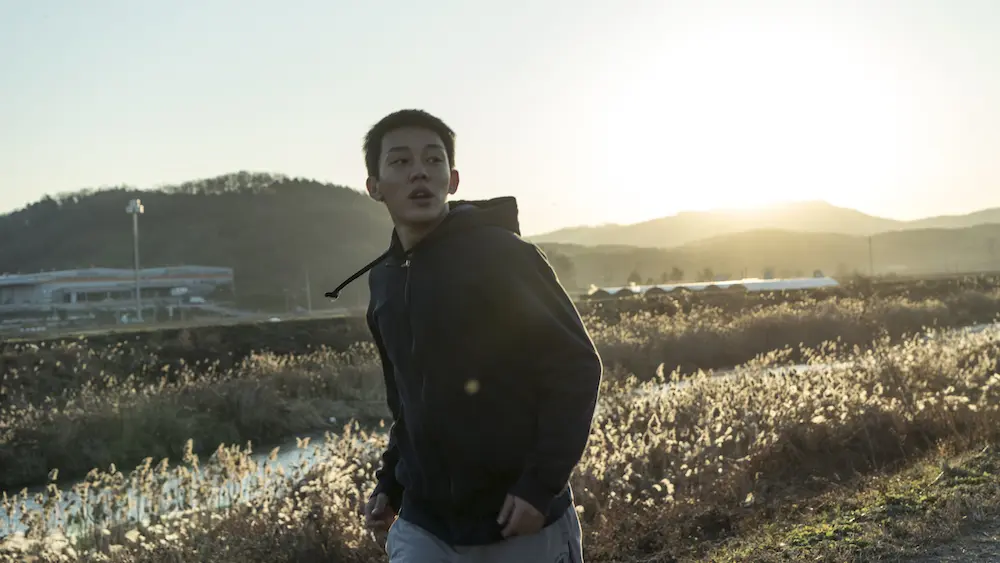Summary
Burning is a daring neo-noir thriller which unfolds like an all-too=real and very troubling dream. The year’s best thriller, which burns on the screen and leaves a lasting impression.
When the first teaser trailer dropped for Lee Chang-Dong’s Burning, it was a shock to the senses. As trailers go, Burning ticked all the right boxes, offering us just enough information without revealing too much (perhaps other film trailers should take note). The film’s moodiness and feeling of suspense came oozing out of the screen, leaving quite an impression. This year has seen some original thrillers being released, such as Searching, You Were Never Really Here, and Unsane, but they all pale in comparison when it comes to Burning. The film is a slow burner (yes, that is an intentional statement) and is so tense that your knuckles will turn white. The master of suspense himself couldn’t do a better job. With splashes of Hitchcock’s Rope and Highsmith’s Strangers on a Train crossed with The Talented Mr Ripley, Burning is the Patricia Highsmith novel and Hitchcock adaptation that was never was.
Burning is an electrifying psychological drama set in South Korea, where the gap between the poor working class and the wealthy has grown dramatically and a generation is suffering from vast unemployment. Burning‘s protagonist is Jongsoo (Yoo Ah-in), an ambitious writer and a recent graduate (who studied creative writing) who is struggling to make ends meet by being a delivery boy. One day, he happens to bump into an old classmate, Haemi (Jeon Jong-seo), who remembers him, but he doesn’t quite recall her. The two of them seem to hit it off; Jongsoo gifts her a pink plastic watch that he won and in a touching scene the two of them get drunk in a bar while Haemi mimics peeling and consuming an orange. The chemistry is there between them, and for a split second, we are led to believe that this could be a touching, heart-warming romantic drama… And then Haemi goes on a holiday to Africa, only to return with a new friend in the form of Ben (played by The Walking Dead‘s Steven Yeun).
Ben is everything that Jongsoo isn’t; he’s from a well off family while Jongsoo is from a poor farming family (his mother left him when he was a young boy and his father is at risk of being sent to jail). Ben is handsome, sophisticated and cultured. He so perfect a human being that he hardly seems real, with even Jongsoo comparing Ben to the fictional character of Jay Gatsby. The three of them start a friendship, but of course, the tension between all of them is unbearable to watch, with Jongsoo becoming more and more suspicious about Ben as he spends more time with him. Haemi seems to be on the brink of a mental breakdown, stripping down and dancing topless outside and weeping in a restaurant uncontrollably. However, it is Ben who is the object of Jongsoo’s concern as he quickly discovers that Ben has a disturbing hobby of setting greenhouses on fire. Then things take a dramatic twist when Haemi vanishes without a trace.

Based on the short story by Haruki Murakami, Burning‘s strength lies in its slow, steady narrative which unfolds gradually until it reaches a terrifying climax, that leaves you reeling from the shocking violence occurring on-screen. With every plot point that is revealed, the film never becomes melodramatic or contrived; this is partly to do with the score by South Korean composer Mowg which works well in the background, hardly noticeable but enough to cause the very hairs on the back of your neck to stand up. The film’s cinematography by Hong Kyung-pyo creates this unnerving sensation of restlessness; there are often long graceful tracking shots capturing the vast, lonely South Korean countryside, with its barren fields stretching on for miles. We get the sense that we could scream for help as loud as we could out in these fields, and no one would ever come for us.
Each actor is perfectly cast in their role. Yoo Ah-in has a nervous, anxious quality to him, with his eyes full of hope for a future that doesn’t exist. As the narrative unfolds and ugly truths are revealed, we anticipate that he would become more and more unhinged, but Yoo Ah-in plays this role in a reserved, straightforward fashion without resorting to melodrama and overacting. Steven Yeun’s Ben is a chilling creature, and a true sociopath lacking all empathy, confessing that he has never cried without a blink of an eye, stating in such a matter-of-fact fashion that it’s hard not to feel deeply disturbed by this confession. He oozes such charm that its hard not to be taken in by him, and we can understand how the emotionally vulnerable Hae-mi falls under his spell. Jeon Jong-seo is enigmatic on-screen and has such a powerful presence in the film that she is certainly one to keep an eye on to see how her career unfolds.
With Burning, Lee Chang-Dong has managed to capture the feelings of anxiety and the apprehension of a nation. Burning is a masterclass of tension and suspense that discusses the issues of class conflict and the perverse lives of the rich and bored. There is no denying that this is one of the year’s most effective thrillers, with a closing shot that will last with you for long after the credits have rolled, burning into your very soul and memory.




